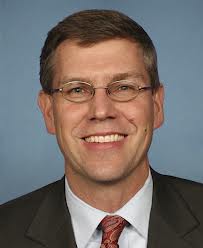When Congress passed a two-year transportation bill in 2012, active transportation advocates had to scrape and claw for every penny of funding for walking and biking programs. When the dust settled, it seemed they would have to repeat the same old battles when the law expired.

Right now the current law is up for renewal in May, though it could very well be extended as-is with another short-term funding fix. But at some point, Congress will have to get serious about crafting and passing a new transportation bill. Will bike/ped funding be as contentious as last time?
Caron Whitaker of the League of American Bicyclists thinks not.
Of course, there will be some similarities, she told an audience at the Pro-Walk Pro-Bike Pro-Place conference in Pittsburgh yesterday. Two recent anti-bike amendments from senators Pat Toomey (R-PA) and David Vitter (R-LA) have already put national advocates on notice that they’ll be playing defense again.
With the funding question still totally unresolved, it’s unlikely the next bill will be flush with cash, so lawmakers are likely to start looking for “extraneous” things to cut, and some are sure to zero in on the tiny amount allocated to bike and pedestrian projects through the Transportation Alternatives Program. Whitaker guesses that advocates and grassroots supporters will have to mobilize three or four times in the next couple of years to fight off attacks like those.
Those are the similarities. But there are some significant differences, too.
There are now about 20 Congressional Republicans who reliably sign on to pro-bike legislation. The last time around, there were only three.
Why the change? One reason is that federal advocates have adjusted their goals in response to the headwinds they’re up against. They’re not asking for dedicated funding, just funding that is eligible to be spent on biking and walking projects.
And perhaps another reason is that virulently anti-bike House Majority Whip Eric Cantor (R-VA) recently softened his position (just before getting booted out of office).
So that’s one difference.
Here’s another: The Bike League has had success getting bike and pedestrian safety language inserted in the annual appropriations bill. It’s unusual for this type of bill, which is mainly about budgeting, to contain policy language, but Chicago Democrat Mike Quigley recently introduced an item urging U.S. DOT to specifically consider pedestrians and cyclists when it administers safety funds. The language is only a recommendation, not binding law, but it means the transportation reauthorization bill is no longer the only chance at bat for federal advocates.
Thanks to another bill, a new coalition is coalescing that links active transportation advocates to a wide-ranging set of partners. The Personal Health Investment Today bill would allow people to use tax-free health savings accounts to pay for preventive health care, including gym memberships, bike-share memberships, and even new bikes. Whitaker called it a "message bill," which perhaps is a nice way of acknowledging that it almost certainly won't be enacted, at least according to GovTrack. The exciting thing, however, is that the bill gave bike advocates the chance to work together on federal legislation with a broad coalition including public health interests, the athletic industry, and insurance companies.
The proliferation of Vision Zero objectives at the local level has given walking and biking advocates another opportunity, outside the federal bill, to make substantive change. And this trend could be linked to federal policy in the future: Opportunities could arise to encourage the federal government to play a meaningful role in helping states and cities reach their Vision Zero goals.
And finally, while active transportation advocates certainly had a friend in former Transportation Secretary Ray LaHood, they didn’t have a major U.S. DOT strategic initiative backing them up. The bike/ped safety push that Secretary Anthony Foxx announced yesterday at Pro-Walk Pro-Bike will, one hopes, make the department a stronger ally.
The current funding stopgap expires May 31, 2015. There will likely be more extensions after that. But this purgatory can’t last forever. And in the meantime, bike/ped advocates are finding ways to make inroads.





